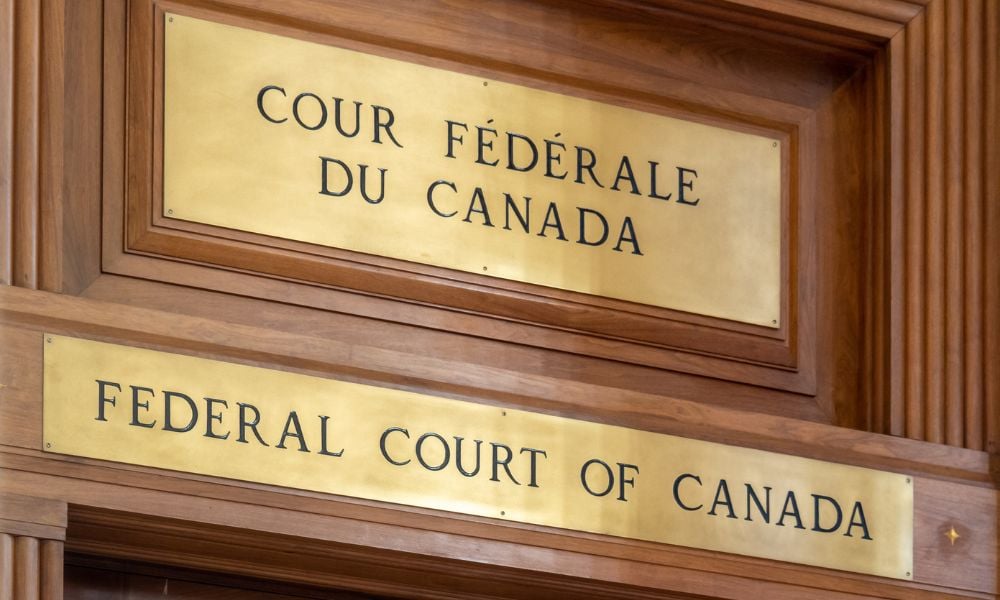Federal Court grants judicial review for North Korean seeking permanent residence

A man who fled North Korea and was advised by a now disbarred lawyer to misrepresent his identity while applying for refugee status has been granted judicial review by the Federal Court for his failed permanent residence application.
In Kang v. Canada (Citizenship and Immigration), the Federal Court reviewed an immigration officer’s decision to refuse Baekryong Kang’s application for permanent residence on humanitarian and compassionate grounds. Justice Richard Southcott found the officer failed to demonstrate that they had considered key evidence in Kang’s application and found the decision unreasonable. As a result of the judgment, Kang’s application has been sent back to another immigration officer for redetermination.
Kang was born in North Korea and fled to China at the age of 17. He was later arrested in Mongolia while trying to reach South Korea and spent a few months in a Mongolian refugee camp before reaching his goal in 2005. In South Korea, he registered as a North Korean refugee and was granted citizenship.
“In South Korea, North Koreans are automatically given citizenship, but they're not necessarily treated very well by the general population,” says Naseem Mithoowani, who represented Kang in his application for judicial review. “The objective documents show a high level of stigma, discrimination in employment and mental health concerns for North Koreans in South Korea.”
In 2011, Kang came to Canada and made a refugee claim under a fake name, which was accepted. In 2019, the Refugee Protection Division became aware of his identity, and as a result of his misrepresentation, vacated Kang’s refugee status.
Kang then applied for permanent residence on humanitarian and compassionate grounds and in his application, explained why he had sought refugee status under an alias. It had been the advice of his former lawyer.
That lawyer had since been disbarred, criminally convicted, and incarcerated for fraud stemming from a real estate transaction.
“What's interesting to note is that, ultimately, she was disbarred, and penalized criminally for other dishonest acts – but not related to the refugee matter,” says Mithoowani. “It's not surprising to me because we know that refugee claimants, in particular, are very hesitant to report misconduct to authorities when it relates to their legal counsel.”
Immigration and refugee law produces the smallest number of claims for professional misconduct against lawyers, she says. “Not because it doesn't happen, but because there's there are barriers to bringing that to light.”
The lawyer had advised other North Korean refugees to similarly hide their true identities, and Kang’s application for permanent residence included letters from them attesting to that.
To put the misrepresentation in context, Kang also submitted evidence that operating under a false identity was a necessary cautionary measure for North Koreans, both while in transit from their home country, and in South Korea, where there are North Korean spies. “Hiding one's identity, as a way of survival, was embedded within the psyche of the North Korean population,” says Mithoowani.
The case turned on the immigration officer’s failure to consider the context of Kang’s misrepresentation, and the testimony of the North Koreans who described Kang as, like them, a victim of his former lawyer’s bad advice. The officer referred to the letters in their decision, but only to analyse Kang’s social connections in Canada.
Despite overlooking the reason for the misrepresentation, the misrepresentation itself was a prominent aspect of the officer’s analysis of Kang’s establishment in Canada and the evaluation of the humanitarian and compassionate considerations his application raised. The officer found the misrepresentation “drastically detracted” from Kang’s establishment, said Justice Southcott in his reasons.
The judge found the officer’s neglect of Kang’s evidence explaining the misrepresentation amounted to a reviewable error.
“You've got a vulnerable population, often traumatized based on what they've seen in North Korea – and some of the horrific details of how they had to flee – don't speak English, don't understand the legal system, are in a power imbalance with this lawyer, are being told that this is the only way forward, and in some cases, intimidated when they tried to push back.”
“Maybe that doesn't excuse the misrepresentation,” she says. “The officer could have found that despite all of this contextual detail, the misrepresentation is such that the application couldn't be approved. But the officer needed to make that decision with regard to all of the facts. It wasn't enough for the officer just to ignore it.”
Canada argued that Kang’s submissions in support of his permanent residence application, which were prepared by another former lawyer, “did not expressly ask that the context of his misrepresentation be taken into account” as a humanitarian-and-compassionate consideration. While Justice Southcott noted that the manner in which applicants frame their applications significantly informs immigration officers’ “parameters of analyses,” so does the evidence applicants submit to support their case. Kang had clearly included letters describing his former counsel’s conduct to account for his misrepresentation, he said.
“The judge made the point that legal submissions don't constrict the assessment,” says Mithoowani. “You can have evidence that still needs to be considered, even though it's not directly pointed out to a decisionmaker in the legal submissions that accompany the application.”
“The lesson would be, focus the decisionmaker’s attention to important parts of your case in submissions to avoid that potential argument that it was a peripheral issue or evidence that was not considered by an officer.”
The court also noted that it did not need to be convinced that the neglected evidence would have been determinative in finding in favour of the humanitarian application, she says. The court’s role is to ensure the appropriate decisionmaker has considered all the relevant evidence.
“The applicant is entitled to a fair process where everything that they wanted to be considered was considered.”










